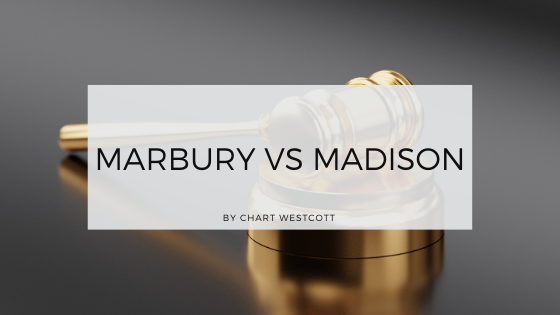Marbury v Madison was one of the first cases conducted by the Supreme Court back in 1803. The case set a precedent not only for how the supreme court handles cases but for the very power of the supreme court itself.
The case originated from a particular incident that occurred in 1801 during the end of the presidency of John Adams. He had a very known rivalry between himself and future president and founding father, Thomas Jefferson. Although they were both founding fathers, they held a consistent ideological and political rivalry. Adams lost the election of 1800 to Thomas Jefferson, and in 1801, just two days before the end of his term, Adams appointed several democratic-republican officials to make Jefferson’s presidency even more difficult. The United States Senate approved of his appointments almost immediately, although the officials did not receive their letters until after the inauguration of Thomas Jefferson. Because the letters were not delivered until during Jeffersons’ presidency, he believed the actions of Adams to be null and void. He ordered his Secretary of State James Madison not to deliver the letters to the newly appointed officals.
One of the men whose commission was not delivered was a Maryland businessman named William Marbury. After he asked Madison to repeatedly provide his commission, which he obviously denied, Marbury filed a lawsuit against him with the Supreme Court. Following the lawsuit, in an opinion written by that time Supreme Court Cheif Justice John Marshall, they did not order Madison to comply. The court agreed that Madison’s refusal to deliver the commissions was illegal and that the court can order a government official to provide the commission in an average case. This, on the other hand, was no average case.
This historic case also established the practice of judical review, allowing the courts of the United States to strike down any laws, decisions, or orders that go against the constitution. Marbury v Madison wasn’t merely the first Supreme Court Case. Neither was it a case of rivalry and conspiracy. The historic case set a precedent for how a fledgling country would deal with unjust decisions, a precedent we still uphold today.
